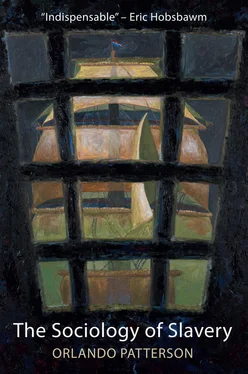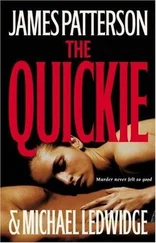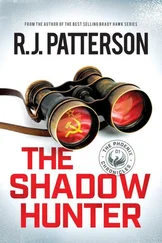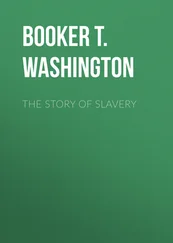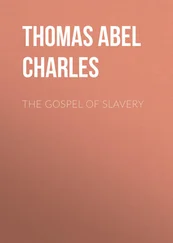Prominent among earlier scholars who, in critical reaction against the acculturation studies of Herskovits, had clearly articulated a conception of the Caribbean as a space in which creolization was the norm, was Sidney Mintz, who spent a lifetime researching the problem and developing a theoretical framework for understanding it. 78One prominent creole linguist who has extended her work from language to the socio-cultural domain of what she calls the ‘creole space’ is Bartens, whose book is an important contribution to the historical sociology of creolization that deserves greater attention among Caribbeanists. 79Given its roots in the study of language, it is perhaps not surprising that one of the most theoretically sophisticated and empirically informed works on the Jamaican creolization process is by the critically acclaimed British historian of French and Francophone Caribbean literature, Richard D. E. Burton. 80
Mary Turner’s 81thoroughly documented, well-written work on the island during the same period covered by Brathwaite, paints a more complex, conflict-ridden system from which the religious sphere was not spared. The works of Sheridan, the Bridenbaughs and Dunn are especially valuable in placing Jamaica within its broader West Indian context, the latter two emphasizing the failure of early British Jamaica as a social system. 82Greene’s recent study offers a wealth of information on a wide range of social and economic activities, land use and demographic patterns at an unusual level of detail, and for the period of the mid-18th century too often neglected in recent studies. 83
One quaint work on Jamaican slavery by the American historian Vincent Brown, 84has left me and many historians from the region perplexed. According to Brown, the catastrophic mortality rate in Jamaica for both blacks and whites, far from hardening attitudes towards death, was the source of cultural creation, ‘the principal arena of social life and gave rise to its customs’. This is a polished production, well received, but it describes a world unfamiliar to nearly all of us who have closely studied Jamaican slave society. True, there were elaborate funeral rites among the enslaved, mainly adaptations of African mortuary rituals to the exigencies of the plantation dead yards in which death was celebrated, when given the chance, as a return passage to Africa, which I discussed at some length in The Sociology of Slavery (pp. 195–207). Brown argues, however, that death and its rituals were central to life and culture at all levels and among all ethno-racial groups in Jamaican slave society. I found no evidence of any such cultural preoccupation in my years of study of Jamaica, nor has any of the many outstanding historians mentioned above who have studied the period over the past century. To the contrary, insofar as the most reliable contemporary observers mention the subject, it was to comment on the callous indifference of the whites of all classes to death and dying. Lady Nugent, one of the most astute observers of the late period, repeatedly expressed distress and astonishment that ‘here no one appears to think or feel for those who are suffering from these frightful attacks’ (17th August 1801) and, two weeks later, ‘that the usual occurrence of a death had taken place. Poor Mr Sandiford had died at 4 o’clock this morning … but all around us appeared quite callous’, then on the 10th December that same year: ‘He disgusted me very much the other day, by making a joke of poor Lord Hugh’s death; but it is a common custom here .’ [emphasis added] 85Thomas Thistlewood in his thirty-six years of living and keeping a diary on life in Jamaica offers not a single instance of any such preoccupation, the death of fellow whites such as the glutton who ‘eats as much as four moderate people would do’, treated as a matter-of-fact event that he had coming. The novelist Matthew Lewis, who had an extremely keen eye for anything unusual about Jamaican conventions and, as a celebrated gothic novelist, would certainly have been alert to unusual death customs among his fellow whites, comments informatively about the ‘African’ burial customs, obeah beliefs and ancestor worship of the blacks, but tells us nothing unusual about the whites’ responses to death. 86The response to Lewis’ own death is revealing. As the most celebrated slaveholder of his time, one would have expected what Brown describes as ‘intense and significant political activity’ and familial mourning rituals around his death. Instead, few mourned the rich man’s death, the editor of the journal, Judith Terry, commenting: ‘Celebrity that he was, his death caused hardly a ripple.’ 87On this we can all agree: Professor Brown has forcefully restated the well-known fact that death was pervasive in Jamaican slave society.
One category of dominion studies concerns the development and role of the coloured or mixed racial group and of manumission in Jamaica, a subject first extensively explored by Goveia in her study of the Leeward Islands. The group was relatively small, but of increasing importance and influence from the late 18th century, attracting the racist venom of the island’s most educated and important 18th-century resident, Edward Long. 88Jamaica’s, and other West Indians’, odd mix of hypodescent and hyperdescent rules of racial assignment, its notions of whiteness and racial purity combined with the peculiar eventual recognition of legal equality for the more prosperous of the mixed group, and the general ‘white bias’ of the society that lingers to this day, 89originates in the interaction of coloured and whites and their joint contempt for blackness, enslaved or not. As the novelist and slaveholder Matthew Lewis perceptively observed: ‘nor can the separation of castes in India be more rigidly observed than that of complexional shades among the Creoles’. 90A peculiar feature of Jamaican slave society, which it shared with its American counterpart, was its hostility to manumission throughout the 17th and 18th centuries. Economist Ronald Finlay and I have shown that manumitted played a critical role in the maintenance and stability of most large-scale slave systems, especially where enslaved outnumbered the slaveholder population, playing important middlemen roles as well as reinforcing feelings of self-degradation among the enslaved. 91Although Jamaican white slaveholders recognized this, it is typical of the racist vehemence and notions of racial purity that they only reluctantly came to embrace this principle of self-preservation, a problem well explored in Newman’s recent study. 92A substantial literature has emerged on the subject since Goveia and Brathwaite’s works. 93While the strong emphasis on the abolitionist period may be justified on the grounds that this was when the group grew substantially in numbers and importance, there is still much to be written on the subject in the early and classic 18th-century periods of the society, as the works of Livesay, Burnard and Newman have clearly demonstrated. 94
A growing number of first-rate works from younger scholars indicate that the historiography of dominion studies on Jamaica continues to thrive, most notably those by Petley, 95Ryden, 96Smith 97and Graham. 98A recent trend is to locate Jamaican dominion studies within the broader context of the Atlantic framework of historical scholarship, what has been called the ‘Atlanticization’ of slavery studies, from which has emerged a vast body of scholarship. Eric Williams’ enormously influential work is, of course, the classic study in this area, 99which has generated a huge literature of critics and defenders. 100As a comparative historical sociologist I can hardly complain about this development although it is worth bearing in mind the words of one of Jamaica’s most eminent historians, Franklin Knight, who cautioned that such studies should never lose sight of the fact that the Caribbean society being studied should steadfastly remain ‘the main event’. 101
Читать дальше
